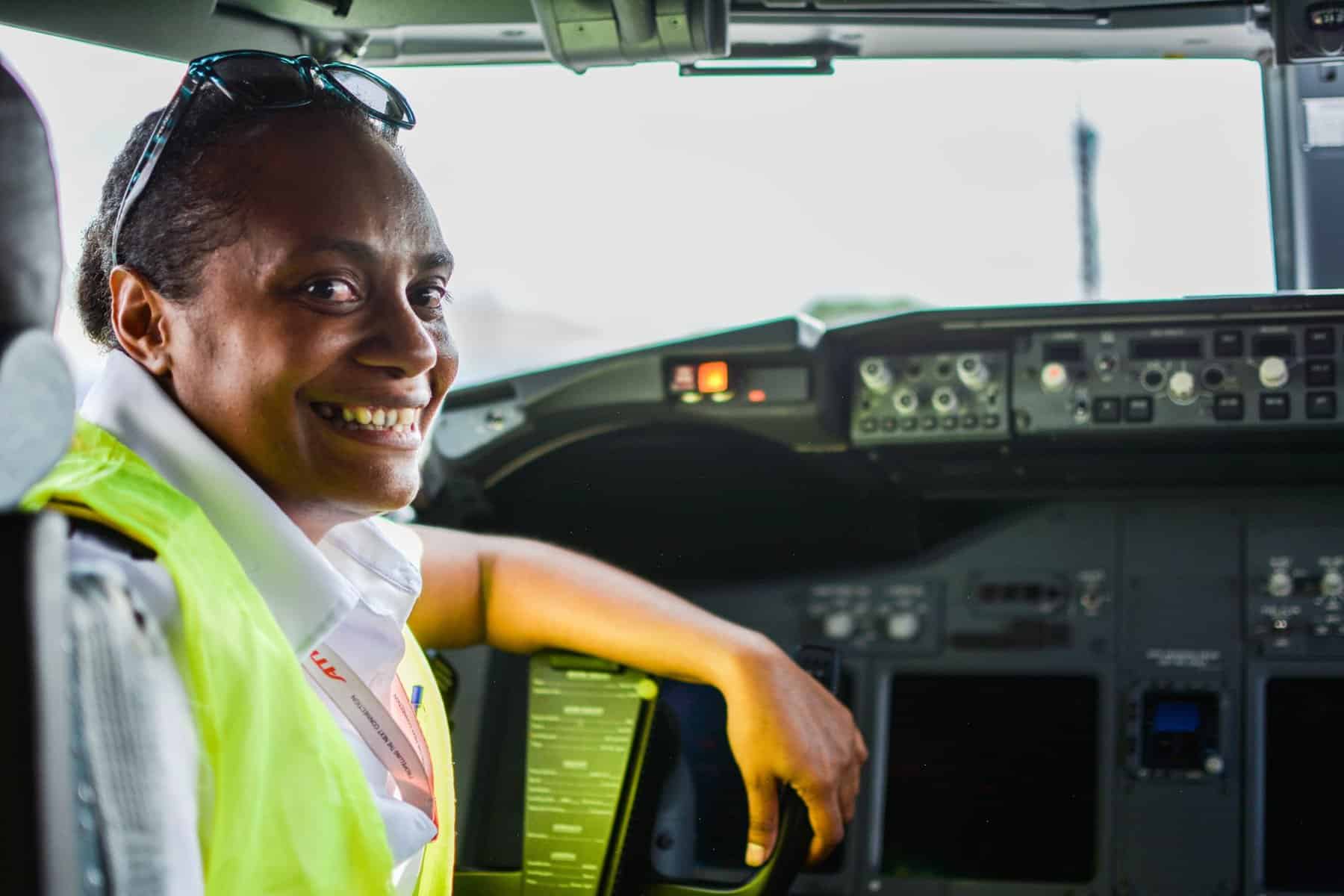Many Ni-Vanuatu went to Philippines a few years ago to do their pilot training, however upon returning to Vanuatu, the Civil Aviation Authority of Vanuatu (CAAV) did not accept the Philippines Civil Aviation Authority (CAAP) Commercial Pilot Licences (CPLs) which they graduated with.
As a result, until today many of them could not work as pilots since their graduation.
This had many people questioning why they could not get their licenses converted to CAAV CPLs and some people even claimed this could be a geopolitical move by Australia and New Zealand through the CAAV to stop our pilots from flying unless they trained at their schools.
CAAV Licensing Officer, Madeleine Esau, assures everyone that there is no geopolitical interference from Australia and New Zealand and even though Vanuatu has adopted the New Zealand air law, Vanuatu is an independent nation and conducts its own licensing issues as per its own Licensing rule part.
Esau says a message which is not clearly understood by public, or these so-called parents is aviation is a field where they do not compromise with safety and that is exactly their main objective, not to compromise with safety which need to be upheld at all times as they are dealing with lives of travelling passengers in the air.
Esau says we must not forget that Vanuatu is actually an International Civil Aviation Organisation (ICAO) member state. All ICAO member states must always adhere to ICAO Standards and Recommended Practices (SARPS) and are subject to ICAO Safety Audit to maintain its Status Regionally and globally as a safe destination for air travellers around the globe.
Since Vanuatu is following the New Zealand air law, Esau says all foreign licences from ICAO member states can be accepted by CAAV, but they must meet the Civil Aviation Authority of New Zealand’s (CAANZ) Part 61 requirements and currently the Filipino CPL does not meet this requirement.
The differences in the CPLs from Philippines and New Zealand
According to the CAANZ laws, to get your commercial CPL, you must have a minimum of 200 hours total flying time and within that you must have a minimum of 100 solo [flying by yourself] hours.
Furthermore, within those solo hours, 30 of those hours must be Cross-Country Navigation Flight Time — planned cross-countries to destinations of a set distance from the aerodrome of departure and with a minimum number of takeoff and landings.
Comparing that to the CAAP CPL requirements, to get your CPL in the Philippines, Manila based, First Aviation Academy states you must have a minimum of 150 flight hours recorded.
The 150 hours should include 70 hours’ solo time broken down to 50 hours on Local flights and 20 hours Cross Country Time with at least 1 Cross-country flight should cover 300 nautical mile (540km) distance with full stop landings at 2 different aerodromes.
This is the reason why Esau says the Philippines CPL does not meet the CPL requirements of Vanuatu and New Zealand.
What can be done to overcome this?
Esau says, there were few Philippines Private Pilot Licence (PPL] and CPL holders who approached/applied to CAAV previously for license conversion. Unfortunately, CAAV could not do that as they were no way near to meeting the Vanuatu PPL/CPL requirements.
She says a classic example is one of the Philippine license holders, who submitted his pilot application form for CAAV to convert his Phil. PPL license, CAAV could not do it as he was not eligible for a Vanuatu PPL so he had to look for another scholarship for further flying training at a flying school in New Zealand and had to go through the whole flying training again before CAANZ could even issue him with a New Zealand CPL then he returned to Vanuatu and CAAV converted his New Zealand CPL onto a Vanuatu CPL.
Esau says CAAV normally encourages those who want to be pilots to attend flying schools around the Pacific region and build their experience overseas before returning to Vanuatu.
She says, we do not have flying schools in Vanuatu and the opportunity for the students to build themselves while in flying school is recommended so when they return, they will be attractive to our local operators who have their own company policies which CAAV does not have control over. These local operators are actually Vanuatu approved Air Operators Certificate and General Air Operators Certificate holders who do business and in their own prerogative whether or not to employ someone without an attractive caliber in flying.
